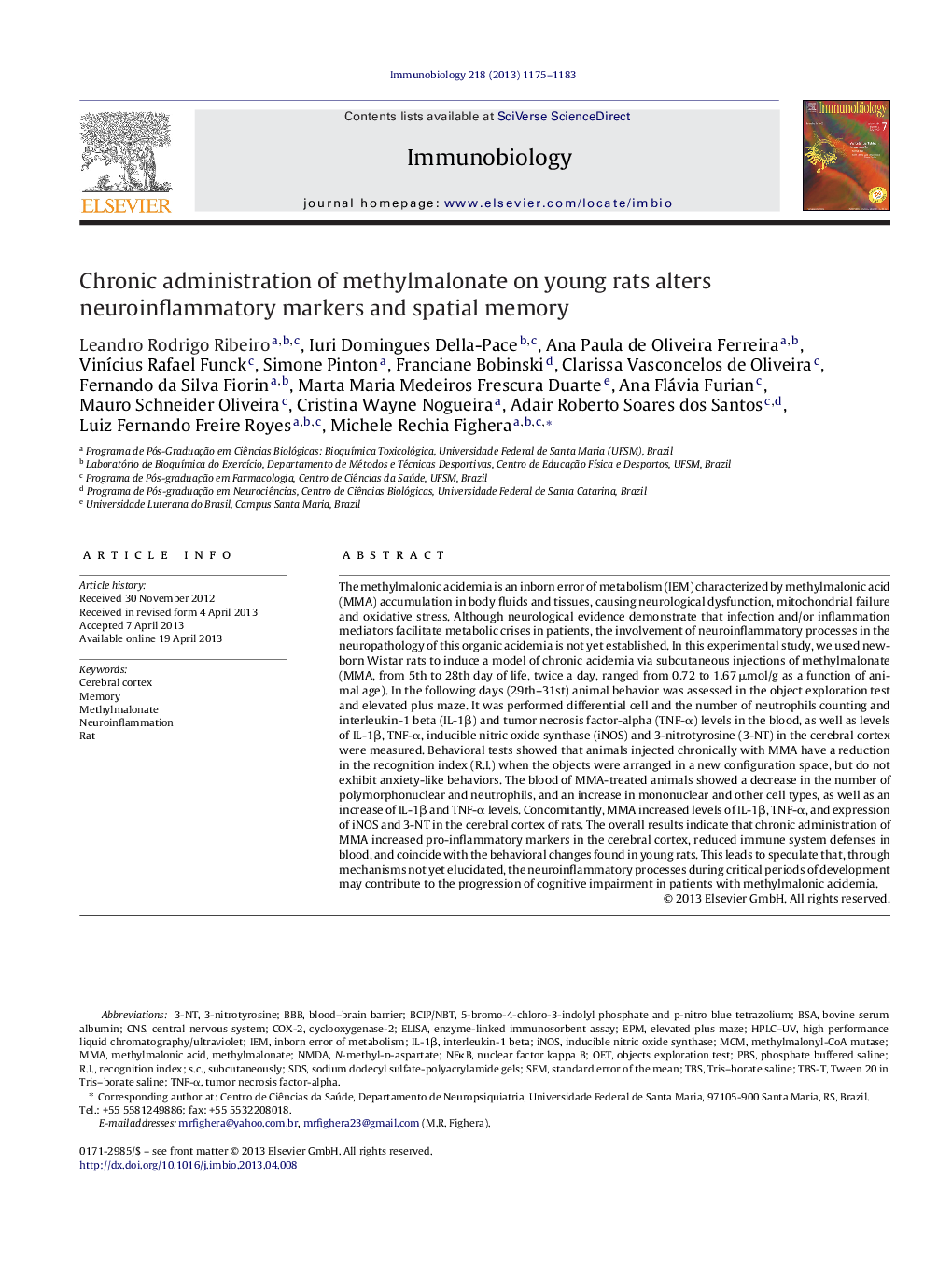| Article ID | Journal | Published Year | Pages | File Type |
|---|---|---|---|---|
| 2183060 | Immunobiology | 2013 | 9 Pages |
The methylmalonic acidemia is an inborn error of metabolism (IEM) characterized by methylmalonic acid (MMA) accumulation in body fluids and tissues, causing neurological dysfunction, mitochondrial failure and oxidative stress. Although neurological evidence demonstrate that infection and/or inflammation mediators facilitate metabolic crises in patients, the involvement of neuroinflammatory processes in the neuropathology of this organic acidemia is not yet established. In this experimental study, we used newborn Wistar rats to induce a model of chronic acidemia via subcutaneous injections of methylmalonate (MMA, from 5th to 28th day of life, twice a day, ranged from 0.72 to 1.67 μmol/g as a function of animal age). In the following days (29th–31st) animal behavior was assessed in the object exploration test and elevated plus maze. It was performed differential cell and the number of neutrophils counting and interleukin-1 beta (IL-1β) and tumor necrosis factor-alpha (TNF-α) levels in the blood, as well as levels of IL-1β, TNF-α, inducible nitric oxide synthase (iNOS) and 3-nitrotyrosine (3-NT) in the cerebral cortex were measured. Behavioral tests showed that animals injected chronically with MMA have a reduction in the recognition index (R.I.) when the objects were arranged in a new configuration space, but do not exhibit anxiety-like behaviors. The blood of MMA-treated animals showed a decrease in the number of polymorphonuclear and neutrophils, and an increase in mononuclear and other cell types, as well as an increase of IL-1β and TNF-α levels. Concomitantly, MMA increased levels of IL-1β, TNF-α, and expression of iNOS and 3-NT in the cerebral cortex of rats. The overall results indicate that chronic administration of MMA increased pro-inflammatory markers in the cerebral cortex, reduced immune system defenses in blood, and coincide with the behavioral changes found in young rats. This leads to speculate that, through mechanisms not yet elucidated, the neuroinflammatory processes during critical periods of development may contribute to the progression of cognitive impairment in patients with methylmalonic acidemia.
